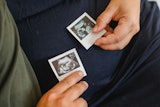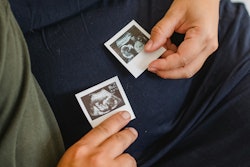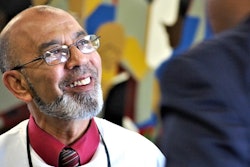From the Eye of the Storm to the Eyes of the Nation
Katrina victims’ health disparities take center stage
By Dr. Rubens Pamies
While Katrina no longer dominates the evening news, the inadequate and negligent response of our government to the New Orleans tragedy presents an unprecedented challenge equal to or exceeding that of rebuilding that city’s infrastructure. Our nation’s health care system has failed. On life support long before the hurricane, the New Orleans’
tragedy accentuates the complete breakdown of the American health care system in caring for our most vulnerable populations. In New Orleans, that means the African-American community, a population in whom chronic illnesses and major health issues are escalating as rapidly as a pneumatic tube in a drive-through bank teller. Widespread poverty in New Orleans’ Black community nearly guaranteed entrapment on roof tops, degradation and suffering in the Superdome and drowning for many. But pre-existing health disparities also created many unnecessary fatalities among the elderly, infirm and chronically ill.
Black people, in general, have much higher rates of diabetes, hypertension, asthma, emphysema, obesity, kidney failure, congestive heart failure and neurological disorders. Diet, lifestyle and cultural differences all play a role, as do the insidious and pervasive psychological aspects of feeling ineffectual and powerless in our society.
Support for a controversial and still unproven theory, which links low levels of chronic stress from racism to increased risk for many health problems, has been accumulating for years. Last May, the strongest evidence yet to support this theory was revealed in a new study by the American Heart Association, which found a link between racism and early stages of heart disease.
Black people are suffering and dying in greater numbers than any other ethnic group in America. We are a nation that’s often described in superlatives — as the most powerful, the wealthiest, the most influential country in the world. How then, do we reconcile that our first-world country is home to many third-world citizens? The United States’ infant mortality rate is a disgrace. Even when you factor in maternal age, income, education and marital status, a Black infant is nearly three times as likely to die as a White infant.
President Bush, Louisiana Gov. Kathleen Blanco and New Orleans Mayor Ray Nagin have all apologized for the inadequate response by their respective levels of government. But who is taking responsibility for the embarrassing level of health disparities among New Orleans’ Black population — or, for that matter, poor people in general?
Our society is profoundly eager to spend money on new technologies that have the capacity to save or improve lives. But where is the more rational call to provide basic health care that would profoundly impact millions of lives at far less expense per capita?
The reasons for health disparities are complex, numerous and at great risk of over-simplification. Some will try to explain them with negative and divisive rhetoric. But if Katrina taught us anything, it’s that Americans care about their brothers and sisters in need, whatever their color or social status. Today, as local, state and federal agencies develop renewed plans to respond to future disasters, we must consider the possibility that terrorists may target minority and underclass communities first with a dangerous biological agent.
Former U.S. Surgeon General Dr. David Satcher has considered this, and says, “In a country where there are so many people who don’t have a personal physician, who don’t have access to health care, if somebody wants to attack us using that kind of weapon, a virus or other bioterrorism agent is going to spread rapidly because people there are not going to have ready access to health care.”
What happens in our most vulnerable communities has implications for all of us.
If the reconstruction of New Orleans is going to be the greatest public works project in American history, then perhaps Hurricane Katrina also can be the catalyst for the greatest leap forward in health care for all Americans as well.
— Rubens Pamies, M.D., is vice chancellor for academic affairs and dean for graduate studies at the University of Nebraska Medical Center.
© Copyright 2005 by DiverseEducation.com





















